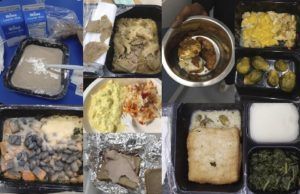On Thursday, November 21, the New York City Council’s Committee on General Welfare held an oversight hearing on “Food Access, Quality, and Inspections at Department of Homeless Services Shelters.” The hearing was held in response to disturbing reports that residents of an adult family shelter became ill after they were served expired chicken salad in October.

Although DHS representatives assured Council Members at the hearing that the food in shelters is safe, nutritious, and of adequate quality, the public testimony from several current and former shelter residents told a different story. Six members of the Coalition’s Client Advisory Group (CAG) presented compelling testimony about their challenges accessing quality food in DHS shelters, and several more submitted written testimony to the Council. They spoke vividly about their firsthand experiences dealing with inadequate portion sizes, difficulties securing food accommodations for religious or medical reasons, and overall unappetizing and reportedly spoiled food.
CAG member Felix Guzman summarized the importance of access to better food by asking, “If we don’t have a healthy meal, how are we to handle the trauma of homelessness?”
The hearing was covered by several media outlets. Tyler Blint-Welsh quoted CAG member Sharifah Harvey in an article for The Wall Street Journal:
Sharifah Harvey, who said she was denied acceptable meals during Ramadan while a resident at the Franklin Women’s Shelter in the Bronx, said the shelter lacked adequate cooking facilities. Two of the three microwave ovens at the shelter recently went out of service for over a month, she said. The shelter serves about 100 people.
“When I have to use the microwave for soup, then it’s going to be a wait if I’m not getting down there at the right time,” Ms. Harvey said.
Julia Marsh also included quotes from CAG members in a New York Post article:
Janet Perry, 61, said she was served “green eggs” from a supplier called Comfort Foods at the Franklin Women’s shelter in the Bronx.
And Cece Brown, who’s been in numerous shelters, said “the milk is going bad or is sour,” the bread is moldy, and “mice are seen in the kitchen area running around.”
Coalition for the Homeless and The Legal Aid Society also presented joint testimony at the hearing, which included a sample of reports Coalition shelter monitors have sent to DHS regarding food issues we have observed and complaints we received from shelter residents. The testimony called on City and State agencies to improve food access and quality across the shelter system:
As of September 2019, single adults spent an average of 425 days in shelters, families with children spent an average of 428 days in shelters, and adult families spent an average of 613 days in shelters. The length of time that individuals and families spend living in the shelter system underscores the need to provide appropriate, healthy, and appetizing meals to the most vulnerable New Yorkers. Food is a basic human necessity, and the quality of food in shelters does not appropriately meet the needs of the 62,000 New Yorkers who often have no other options for sustenance. Our first-hand observations and the information we collect from homeless New Yorkers highlight the inadequate oversight of food provision in shelters. Multiple State and City agencies with inspection authority have failed to ensure the food served in shelters is safe to consume and meets the needs of shelter residents.
…
We recommend DHS implement a complete overhaul of food provision, including assessing the quality of its contracted food vendors, conducting routine inspections, and providing appropriate accommodations to individuals who have dietary restrictions due to medical conditions, religious observance, or other special needs. We also recommend that the City and State agencies with oversight authority immediately implement routine inspections of food provision at shelters. These agencies include the City’s Department of Homeless Services and Department of Health and Mental Hygiene, and the State’s Department of Health and Office of Temporary and Disability Assistance.
An attachment to the testimony includes photographs of food and excerpts from interviews the Coalition conducted with shelter residents about food accommodations, portions, and quality. The full testimony can be read here.